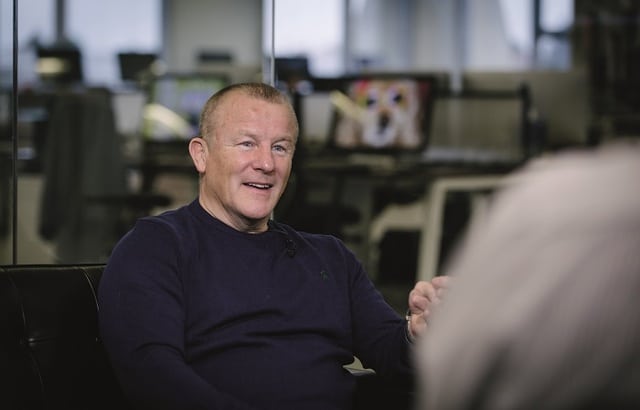The fund manager and founder of Woodford Investment Management apologised for the underperformance of his flagship Equity Income Fund during the 19-minute filmed segment on the firm’s website, and said it was right he had been criticised.
The fund has suffered several knocks over the past few months with companies such as AstraZeneca and Provident Financial, some of his largest holdings, seeing their share price fall drastically.
In the year to 31 August 2016, the flagship Equity Income Fund has trailed the FTSE All Share by -7.63%.
Around half of the underperformance was due to his holding in Provident Financial after its share price collapsed in August following a profit warning, wiping £1.5bn from the sub-prime lender’s market cap.
Woodford said the past two months had been an “incredibly painful and difficult thing to have to navigate”.
“I’m very disappointed with the short-term performance and indeed, have been criticised for it. People on our blog have been criticising me. I’ve been criticised in the media,” he said. “And I think I’m right to be criticised. It’s been a difficult period. And I’m very sorry for the poor performance that we’ve delivered really now since 2016.”
However, he insisted nothing was more important than maintaining investment discipline during a tricky period as a fund manager despite the temptations to follow the crowd.
Quoting the famous economist Maynard Keynes, Woodford said: “He’s not just a brilliant economist, but he was a very successful fund manager. He said, it is often better to fail conventionally than to succeed unconventionally. And I think it’s at times like this I remember those words, because it is — the pressure is relentless to do what everybody else is doing.”
He added: “I’m trying to focus my investment attention always on what’s really happening in the real world. That’s what I mean by fundamentals, the real activity in the economy and the real activity, the real performance of the businesses that we’re investing in, not with the stock market perception or the stock market prejudice, but the reality of the real world.”
He repeated his defence of his stockpicking and process, claiming the market reacted disproportionately, even hysterically, to some bad company announcements.
Criticism has also been levelled at the large holdings he takes in businesses, but Woodford used the interview to fend off such attacks and even included a stinging remark at some ‘closet index portfolios’.
“I don’t believe that there is a problem with owning a large stake in a business that is profoundly undervalued,” Woodford said. “My career has been built on taking big bets in businesses that have been profoundly undervalued. I think it is entirely appropriate and entirely consistent with what we say we do with respect to our managers.
“Clearly, lots of active managers who have closet index portfolios will be quite happy to have very small stakes in businesses. But that isn’t how I run money. That has never been how I have run money. And it will always be a characteristic of what I do going forward.”
When it came to the future of the fund, Woodford was remarkably bullish and said he was “really confident” with how the portfolio was positioned.
“We’re exposed to the right sorts of businesses that are performing well, who share prices are not reflecting the underlying good performance, but they will. And I’m pretty confident they will in the relatively near term too.
“There’s huge potential in the portfolio, huge undervaluation. And it’s a great portfolio, one that I own and want to own more of. The short-term performance is painful and is difficult, but it isn’t a permanent loss of capital. And I can and I believe I will rebuild the performance and rebuild that capital that we’ve lost recently.”











